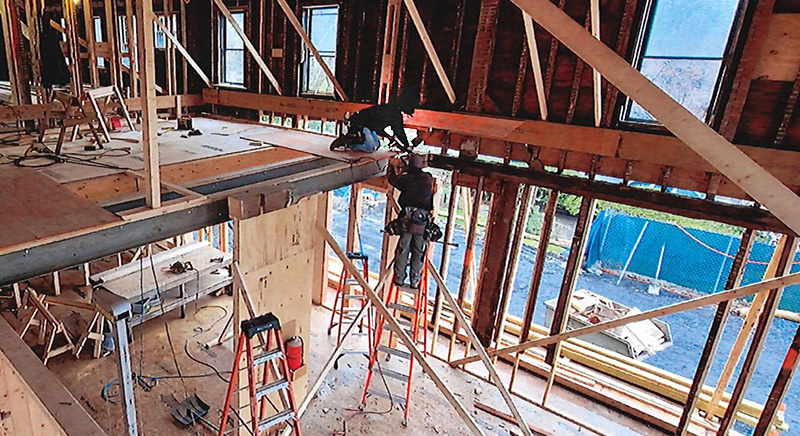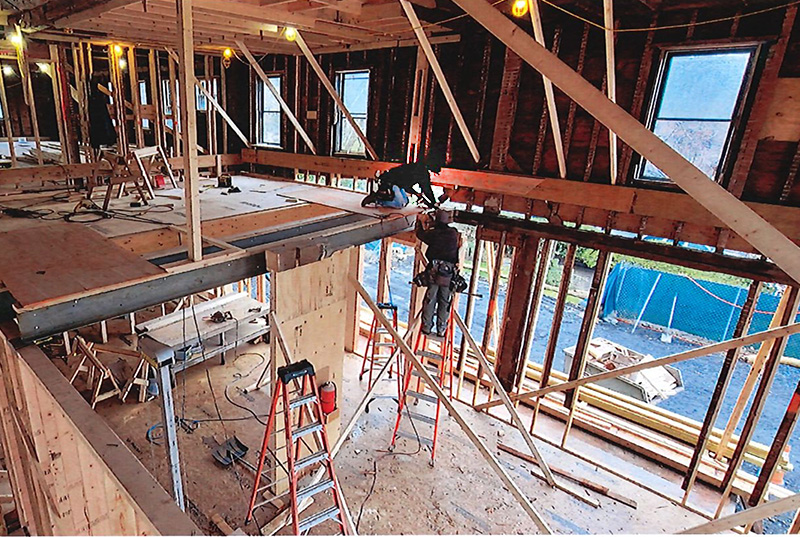Most property owners will again receive tax relief through a process drawing increased discontent
The majority of Cambridge property taxpayers will see a decrease or no change in their property tax bills this year in a plan proposed by City Manager Yi-An Huang, following a model from previous years.
Under the plan, 63 percent of Cambridge residential property taxpayers will not see an increase or see a decrease from last year’s property taxes owed – accomplished by using $19 million in free cash and transferring $2.5 million from a reserve fund (money required to be set aside for tax abatements but not tapped) to decrease the amount that would have been levied under the budget the City Council adopted for the current fiscal year.
Also as in previous years, some were unhappy with property tax relief they said was going to the wrong places.
This year’s property tax rates will be set at $5.86 per thousand dollars of property value for residential taxpayers, and $10.38 per thousand dollars of property value for commercial taxpayers. This is 6 cents lower than last year for residential taxpayers and 85 cents lower than last year for commercial taxpayers.
In the previous fiscal year, 23 percent of residential property tax bills saw no increase; in the 2021 fiscal year, 31 percent of residential property tax bills saw no increase. That makes this year notable in that many more people will have stable property tax bills, despite years of lower city revenue as a result of the pandemic – fewer drivers meant less money from parking meters, for instance, and fewer travelers meant less in hotel taxes.
The total property tax levy is still going up with overall property values, however, increasing 7.4 percent over last year. Under the adopted budget without the city manager’s relief plan, it would have been 8.4 percent, according to an executive department memo crediting “higher than projected state aid, as well as our ability to maintain and use reserve funds to lower the required tax levy.”
In the previous fiscal year, the property tax levy went up 4.7 percent. Over the past five years, the average increase was 6.44 percent; over the past 10 years, the average increase was 5.31 percent.
“The city has consistently been able to support new initiatives, as well as the expansion of important programs, while minimizing impacts on residential taxpayers,” Huang said in the memo. “It is still important, however, to remain cognizant of the ongoing financial impacts related to Covid-19 and to recognize that many key non-property tax revenues remain below historical levels.”
Resident and council resistance
During public comment, people were critical of the long-held practice of using free cash to lower property tax bills instead of offering rent relief, or easing the burden of large businesses instead of building affordable housing.
“There’s many, many things you can do with this $19 million that would help people who actually need the money,” Itamar Turner-Trauring said. “Instead, every year, and we’re going to do this again – we take that money and give it to people who need it the least, the organizations that need it the least.”
While the City Council ended up approving the measure, with only councillor Quinton Zondervan voting against it, members were still skeptical of the practice.
“I still don’t understand and probably never will understand why we are using free cash to reduce our property tax levy,” Zondervan said before announcing he would be voting no.
Ultimatums explicit and otherwise
Councillor Burhan Azeem ended up voting to approve the measure but said he would not support a similar measure next year; Dennis Carlone, a Finance Committee co-chair, similarly voted yes but with an addendum: “This year.”
He wished the money would go instead to building space for universal pre-kindergarten and praised owner tax exemptions over property tax relief, an idea also raised by councillor Marc McGovern after speaking of lower- or middle-income residents who appreciate the relief because they’re “house rich” due to endlessly surging real estate values, but have an asset they cannot touch.
“Just because someone has an asset that’s worth money, that does not mean they have money in the bank to live their life,” McGovern said. “But I wonder if there are other ways in which we can deal with that.”
Forum will change process
McGovern also questioned why these discussions of tax cuts come up so late in the city’s financial process – an issue Finance Committee co-chair Patty Nolan had remarked on. “It seems a little bit funny that it’s after the budget that we’ve passed, and yet it’s tied directly to the budget that we already passed,” Nolan said. “The kind of allocation that we’re talking about today was already foreseen as part of the budget process that we discussed in May and June. In other words, it was anticipated and expected.”
In a change from years past, there will be a forum this fall or early next year to have a discussion earlier in the budget process about setting the tax rate, Nolan said.
The next step in the budget process is submitting the council-approved tax changes to the state Department of Revenue for review. Property tax bills will be sent out at the end of October.





This comes up every fricken year. In a city with a $800M+ budget there are ways to keep our taxes low and also pay for things like affordable housing (which actually gets a ton of money) and for universal pre-k. It’s not an either or proposition. However if Quinton wishes to pay more in real estate taxes I see nothing stopping him.
Oh those greedy terrible property owners who have lived in Cambridge for decades, endured the ups and downs, kept their properties clean and safe. How dare they get some tax relief to help them stay in their homes. Such a shame we don’t give “rent relief” to large rental companies.
p.s. Quinton doesn’t understand why Cambridge doesn’t spend that “free” money on ponies for everyone!
There are plenty of homeowners and condo owners who are not landlords that struggle in this economy, especially those on fixed incomes, that a predictable property tax is a relief in how they struggle in these inflation riddled times.
Keeping the property tax burden on commercial real estate is a necessity as long as we have big Pharmacy and Research labs eating up the city and putting added burden on our resources as a city when it comes to traffic, parking, and infrastructure.